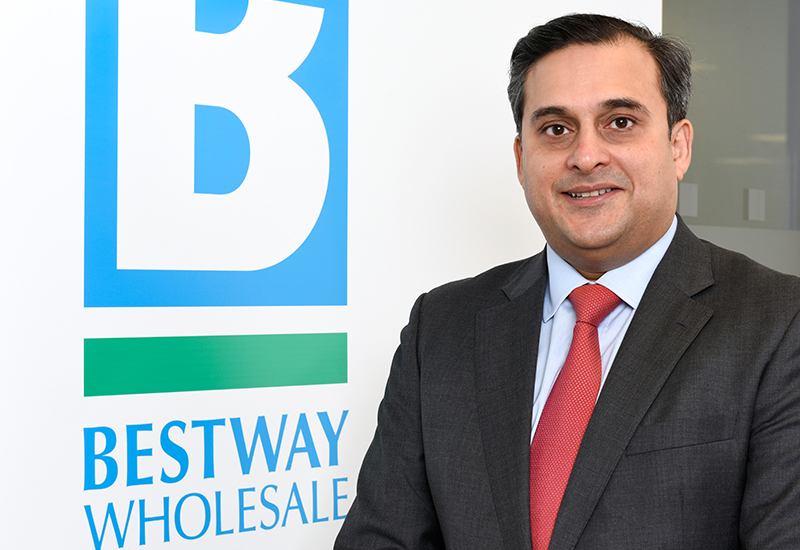
Smart thinking will get us through
Industry experts reveal their views on how the supply chain can weather the perfect storm of high prices and ever-increasing bills
A hunt for efficiencies in wholesale businesses and in the supply chain is becoming crucial for the sector in light of sky-high prices, according to two of the industry’s most recognisable figures.
Both Bestway Wholesale Chief Executive Dawood Pervez and JJ Chief Operating Officer Mushtaque Ahmed have pointed to the cost of living crisis as the inspiration to streamline operations and product ranges.
A combination of inflation, rising energy and fuel prices, the increase in food and drink production costs and other squeezes on wholesalers’ already tight margins has meant the time is now to act.
And with Chancellor Rishi Sunak’s Spring Statement at the end of March delivering little in the way of respite, businesses need to be prepared for what’s coming down the line.
“In 2021, I shared my thoughts on the future of the sector at FWD’s Bringing Wholesale Together seminar. At the time, I highlighted that the issue most worrying to me was inflation and how quickly it was coming through,” explains Pervez.
“Six months on and we’re seeing the highest rate of inflation in more than 30 years and have a cost of living crisis on our hands. We’re also seeing historic fuel prices and significant business costs, such as energy prices and credit card processing fees… 2022 is still shaping up to be a challenging period for the entire supply chain.”

Dawood Pervez, Bestway Wholesale Chief Executive
RE-EVALUATE
It’s an outlook Ahmed agrees with. While he sees opportunity in the chaos – just as he did during the peak of the Covid-19 pandemic – he concedes that it’s time to re-evaluate what has become the status quo.
“In the past 25 years, I have never seen so many price increases within the space of a few months,” says Ahmed.
“But at JJ Foodservice, we’re not fazed – in 2008 we had the financial crisis and every business had to adapt and readjust. It was our opportunity to test ourselves and find better ways of working.
“In 2020 we had the pandemic and today, with the increasing living costs and food supply shortages, we are just getting ready to test ourselves again.”
SAVVY THINKING
Ahmed points to examples within JJ Foodservice’s customer base as signs that businesses are already thinking more savvily and realising they need to approach things differently in order to survive. And it’s not necessarily being achieved by looking in the most obvious places and raising prices to consumers or cutting costs.

Mushtaque Ahmed, JJ Foodservice COO
SMART ACTION
“We’ve already seen how entrepreneurial our customers can be at our recent Women in Fish and Chips conference, where business owners were overcoming increasing costs with new innovative menu
items, including everything from chickpea fritters and smoked sausages to macaroni cheese and gourmet burgers,” he explains.
“Waste management will also play a crucial part in how we move forward in the eating-out sector – we still throw too much food away, both at home and when we eat out. So, while prices are going up, restaurants and takeaways may benefit from looking at portion sizes. Fish and chip shops have already been introducing mini portions for smaller appetites.”
With Bestway’s lifeblood being convenience retail, Pervez has instigated different actions within his business. But the ethos behind what he’s seeing is similar to that which Ahmed is conveying, with smart action the order of the day.
“The sector will have to work incredibly hard to drive down costs and find efficiencies wherever possible,” Pervez says.
“At Bestway, we have taken steps to mitigate the potential disruptions to our business by making agile, brave decisions and devoting investment to support our supply chain. For example, we have streamlined our range, cut tail supplies and increased fast-pick areas in our hubs.
“We have worked in partnership with our supportive suppliers to ensure that shared margins were not eroded and that PMP pricing is fit for purpose. Importantly, we have used our cash flow and the strength of being private to buy ahead of our needs, enabling us to buy better and give our independent retailers the most competitive prices available.
“If we had not implemented these measures, we would have found ourselves in a very difficult position in 2022, but thanks to the proactive steps we have made as a business, we are now in a position to offer our retailers more support than ever before.”
 TALKING POINT
TALKING POINT
JAMES BIELBY, CHIEF EXECUTIVE, FWD
There’s no quick fix for the inflation in energy prices, so it’s FWD’s role to remind the government of the long-term consequences of ever-increasing costs on our members. Ministers must understand that storing and distributing food requires an enormous amount of energy for refrigeration and transport, and while wholesalers will do all they can to improve efficiencies, they’re not in a position to absorb these increases. So the government has to step up and consider supporting food supply to vital public services, for example, by increasing the fee for delivering school meals.”
